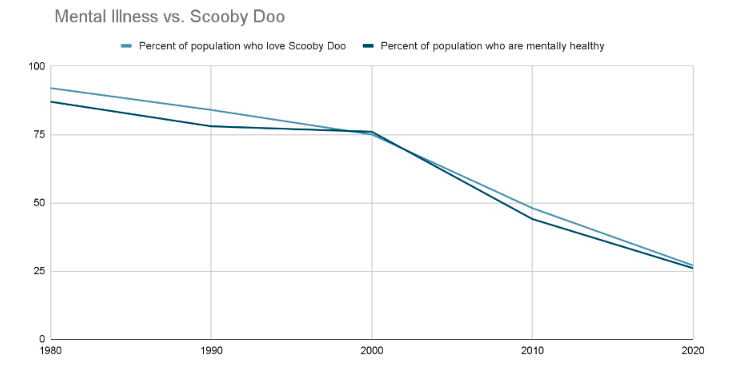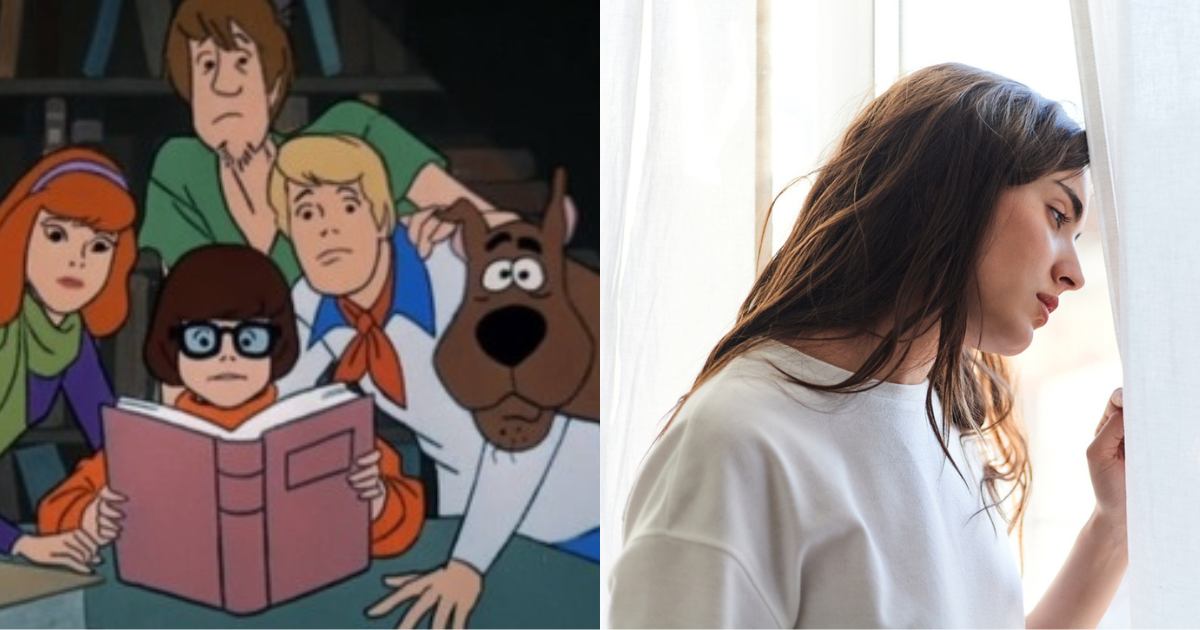There’s been a great deal of attention drawn to the rising rates of mental illness in America, with many potential factors behind the surge. Fascinatingly, one possible link has been found that is definitely worth looking into: Researchers have found a strong correlation between the nation’s declining mental health and the declining popularity of Scooby-Doo.
Wow. Sounds like that should definitely be studied further.
As a team of researchers at the University Of Pittsburgh have discovered, the steady decline in mental health levels in the U.S. over the last 50 years has corresponded almost perfectly with a decline in consumption of and interest in media related to the animated canine detective Scooby-Doo. Although the entertainment industry has tried to keep Scooby-Doo relevant, with new reboots coming out every few years, the researchers found conclusive evidence that the percent of the American population who would self-identify as “loving Scooby-Doo” has consistently fallen since the heyday of Scooby-Doo’s popularity in the 80s and 90s, and that most people today would not even consider themselves casual fans of the mystery-solving Great Dane and his friends. And shockingly enough, the percentage of the American population who are clinically mentally healthy and are not actively seeking or currently receiving psychological treatment has dropped at a strikingly similar rate over the same time period, as illustrated in Figure 1.1 below:
Figure 1.1

This is jaw-dropping. While Scooby-Doo’s popularity has yet to be studied as a causal role in the current mental illness crisis, it definitely seems like someone should do some research into whether the two phenomena are linked. Who would have thought that as the number of people seeking a novelty Scooby Doo lunch box went down, the number of people on psychiatric medication would go up?
Although it remains to be seen whether this means that a national effort to increase Scooby-Doo popularity is necessary to improve mental health, it certainly feels nice to imagine that creating a world where fewer people suffer from severe mental illness could be as simple as getting more vans decorated like the Mystery Machine out on the roads. Regardless, if the state of the nation’s mental health is on the line, it seems worth it to try to make a Scooby-Doo show that’s better than Velma. We look forward to the further studies that this finding will surely inspire!





